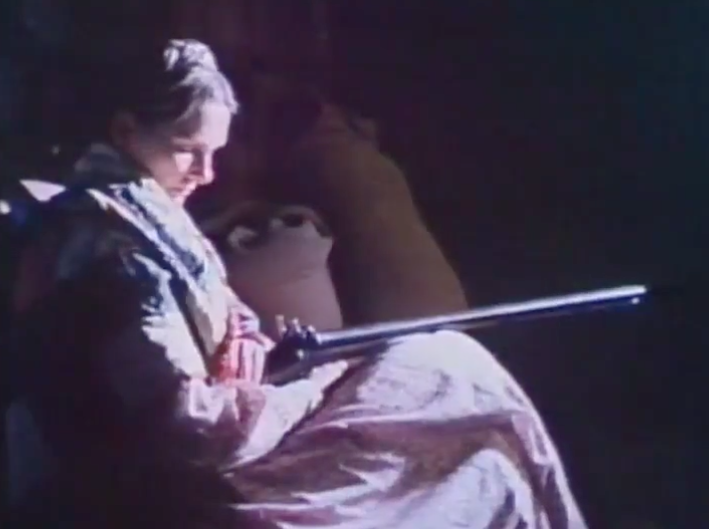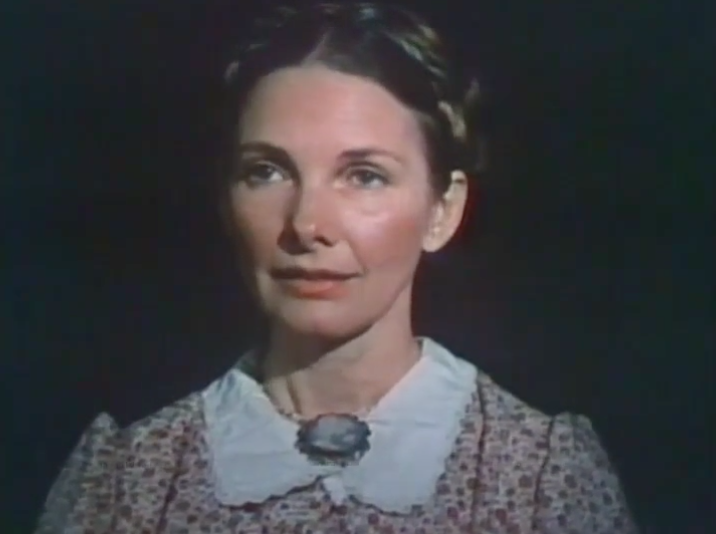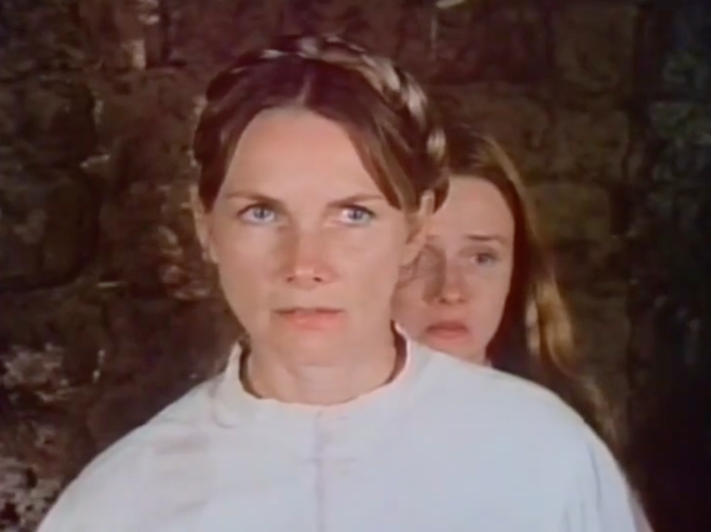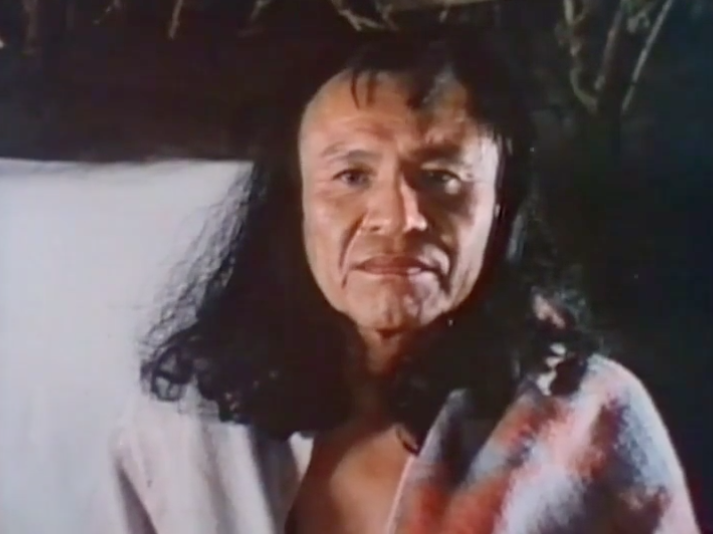
In 1970, Barbara Loden made her directorial debut with Wanda. A landmark of feminist filmmaking, Wanda features Loden as the titular character, a woman who drifts through life with a series of abusive men. Loden never made another feature film. She did, however, complete two shorts in 1975: The Boy Who Liked Deer and The Frontier Experience. Both build on her style and thematic interests explored in Wanda, but it is The Frontier Experience which distills and makes explicit Loden’s feminist project regarding the place of women in society, being a Western concerning the struggles of a mother surviving the winter on the Kansas frontier.
This short, however, brings an added dimension to its gender politics because of its genre…
This short, however, brings an added dimension to its gender politics because of its genre, which relies on reinforcing the exploitative power dynamics of settler colonialism. Within the shorter format, Loden eschews the subtlety of her feature work in expressing a boldly feminist narrative, as there is a refusal to acknowledge settler entitlement and racism within the Western.
In 1980, after Loden’s passing, French writer Marguerite Duras spoke to Loden’s husband Elia Kazan about Wanda, stating:
It’s as if she [Loden] had found a way in the movie to make sacred what she wants to portray as a demoralization, which I find to be an achievement, a very, very powerful achievement, very violent and profound.[i]
This sense of violently depicted demoralization that Duras highlights is key to Wanda and crystalizes in The Frontier Experience. The short follows Delilah Fowler (Loden again plays herself), who narrates her diary entries. Her husband buys a plot of land on the frontier, but dies just as conditions become harsher. Her son leaves to earn enough money so the family may move back East, leaving Delilah and the other children to survive the winter alone. Through a series of setbacks, we watch Delilah’s increasing despair and resignation. Totally isolated, hardships build in intensity, culminating deliriously. Persevering, Delilah and her family survive until spring, as Loden emphasizes her protagonist’s strength and ability to thrive.
It is a notable—and powerful—character arc for Delilah, who initially enters the film meekly. At first deferring to her husband, she hides her true feelings for the benefit of others. (It is only in her narration where she expresses how disheartened she truly feels.) Visually, Delilah becomes trapped on the frontier, her image obscured by the superimposed landscapes and diminished by high-angle shots. But as the film progresses, the character becomes more determined and defiant, with a her turning point coming when she stands up to an Indigenous man (credited as “Indian” and played by Charlie Little Coyote) who comes into her home looking for food. Grabbing the plate away from him, she, for the first time, asserts herself in her home and in her struggle. By the end of the film, Delilah states that she will stay on the frontier, as she looks up towards the sky hopefully. This final shot echoes the film’s opening where Delilah, by contrast, averted her gaze from both the camera and her husband while hiding her anxiety. At the conclusion, filling the frame, Delilah’s image confirms the strength of her presence. She is finally able to outwardly express in her defiant narration.

Of course, it was Deliah’s husband, not her, who ambitiously sought out the adventure of the frontier, while Delilah herself cannot raise the funds to buy her way back East and must depend on her son. In this manner, The Frontier Experience is a political prequel to Wanda where women are subjugated to the whims of men within a patriarchal society, which does nothing to aid them. Where in Wanda the protagonist’s trajectory is a pull from man to man, here the protagonist’s agency is similarly made insignificant in the face of men’s desire: it is the men who are active and the women who must follow. The women in both films are deeply demoralized and accept the gendered order of things, to their detriment.
The women in both films are deeply demoralized and accept the gendered order of things, to their detriment.
However, building off of the bleakness of Wanda, Loden manages to add optimism, and reinvents her narrative to still demonstrate the oppression of women, while speaking to hope and an ability to prosper. Outside of society on the unstable frontier, Delilah is able to do what Wanda could not: form a life for herself, not restrained by patriarchal structures. In this, Delilah finds a success Wanda could never have—though Loden never questions how this empowerment is possible.

The concept of the woman finding her place on the frontier is one which challenges the typical structure of the Western, taking emphasis away from the adventuring and civilizing man and placing it onto the woman, who was not always afforded the agency of her masculine counterparts. Consciously engaging with politics and social structures as they were formed and reformed within the building of the nation, while cinematically subversive in its engagement with genre, The Frontier Experience becomes disturbing in its inability to acknowledge colonial violence.

The Western tropes become both necessary and challenging to Loden’s film. Potential success becomes reality for the white woman only because of the tenuous hold the white man has over the frontier, yet the destabilized state of society is only possible through theft of land. As a site of imbalanced white patriarchal power, the frontier gives space for the woman to assert herself in a manner impossible under concrete and pervasively upheld social restrictions. But as a genre inextricably tied to racism and colonialism in content and iconography, it complicates political engagements that feel willfully ignorant, if not simply comfortable in dominant racial ideology.
Loden necessarily engages with the formlessness of the frontier as a site of freedom, as opposed to the social restrictions placed upon Wanda within established American society. She does, however, leave it unquestioned: the encounter with the Indigenous man is not a moment of colonial consideration, but a moment where Delilah achieves the beginnings of strength–though in opposition to the white man, Delilah aligns herself with him on the frontier.
But while she is capable of interrogating the gender politics of the Western, she remains comfortable within the colonial entitlement of manifest destiny, molding it to her feminist needs.
Uncomfortable with the oppression of white women, Loden compresses the bitter degradation of Wanda into something more promising for The Frontier Experience. But while she is capable of interrogating the gender politics of the Western, she remains comfortable within the colonial entitlement of manifest destiny, molding it to her feminist needs.
Chelsea Phillips-Carr is a writer based in Toronto. You can read her work here: chelseaphillipscarr.com





